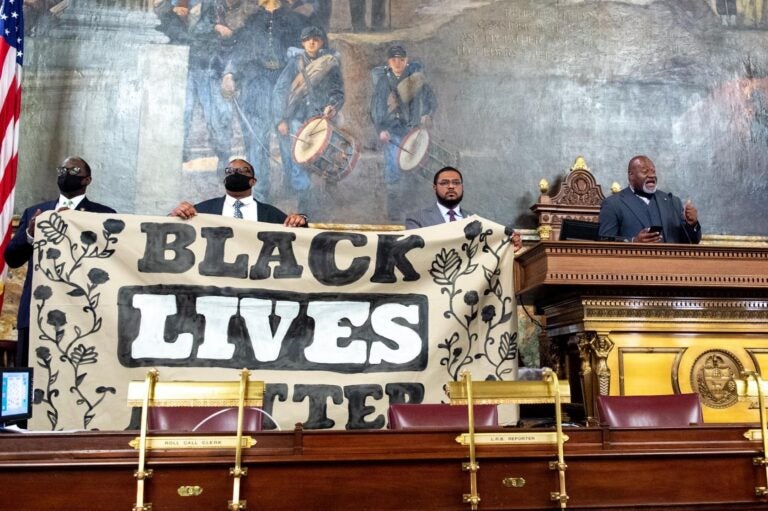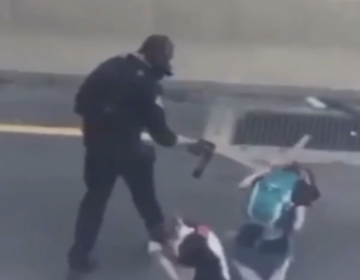Fast-tracking police reforms
Recent civil unrest has pressured state and city lawmakers to pass police reform bills that had been previously ignored. But these new measures only go so far.
Listen 22:31
Lawmakers with the Legislative Black Caucus stage a protest on the Pennsylvania House floor to demand action on bills addressing police violence and brutality, Monday, June 8, 2020. (PA House Dems)
Nationwide protests over racial injustice and police brutality have spurred lawmakers in Philadelphia and Pennsylvania to put some reform bills on the fast track. Now, many advocates who’ve long called for these measures say they’ll only go so far to address the root problems in policing, and the evidence on their effectiveness is mixed.
Cynthia Fernandez of Spotlight PA explains how a bill that languished in committee after the police killing of Antwon Rose in Pittsburgh finally came to pass, and WHYY criminal justice reporter Aaron Moselle breaks down the promise and uncertainty around Philadelphia’s new reforms.

Hear the whole story on The Why
Interview highlights
Cynthia Fernandez on why Pa. lawmakers acted now
Lawmakers saw their constituents taking to the streets and it created a lot of political pressure and will … Around when the protests began, Black Democrats blocked the voting session in the House from beginning and took control of the rostrum to demand Republicans consider police reform bills. After that demonstration by Black lawmakers, police reform bills finally started getting traction in the committees and several made it out onto the floor.
Before the General Assembly [broke] for summer, they were able to pass two bills to the governor’s desk. One of them is [Philadelphia Democrat] Chris Rabb’s police database bill, and another is the bill that would create implicit bias training requirements and mandate yearly use-of-force instruction. They passed unanimously in the House and the Senate and are awaiting the governor’s signature.
Aaron Moselle on why some advocates now say Philly’s reforms don’t go far enough
Some of this has to do with the timing and what I mean by timing, I mean, when when these bills were introduced by City Council. At that point, the George Floyd protests were very solidly about railing against police brutality. And later, as we’ve seen, this movement has evolved to get to a point where, yes, we’re still talking about police brutality as being a problem, but we’re also now talking about taking a real hard look at what policing looks like in America, including in Philadelphia. What role do police officers play in public safety? And how much money should they have to realize that call? It’s also worth noting that … these were a lot of the reforms that people who’ve been pushing for reforms have been asking for for a long time. And so in some sense, they were what people wanted. And now folks are saying we need more than that, we need more than just this low-hanging fruit.
WHYY is your source for fact-based, in-depth journalism and information. As a nonprofit organization, we rely on financial support from readers like you. Please give today.






